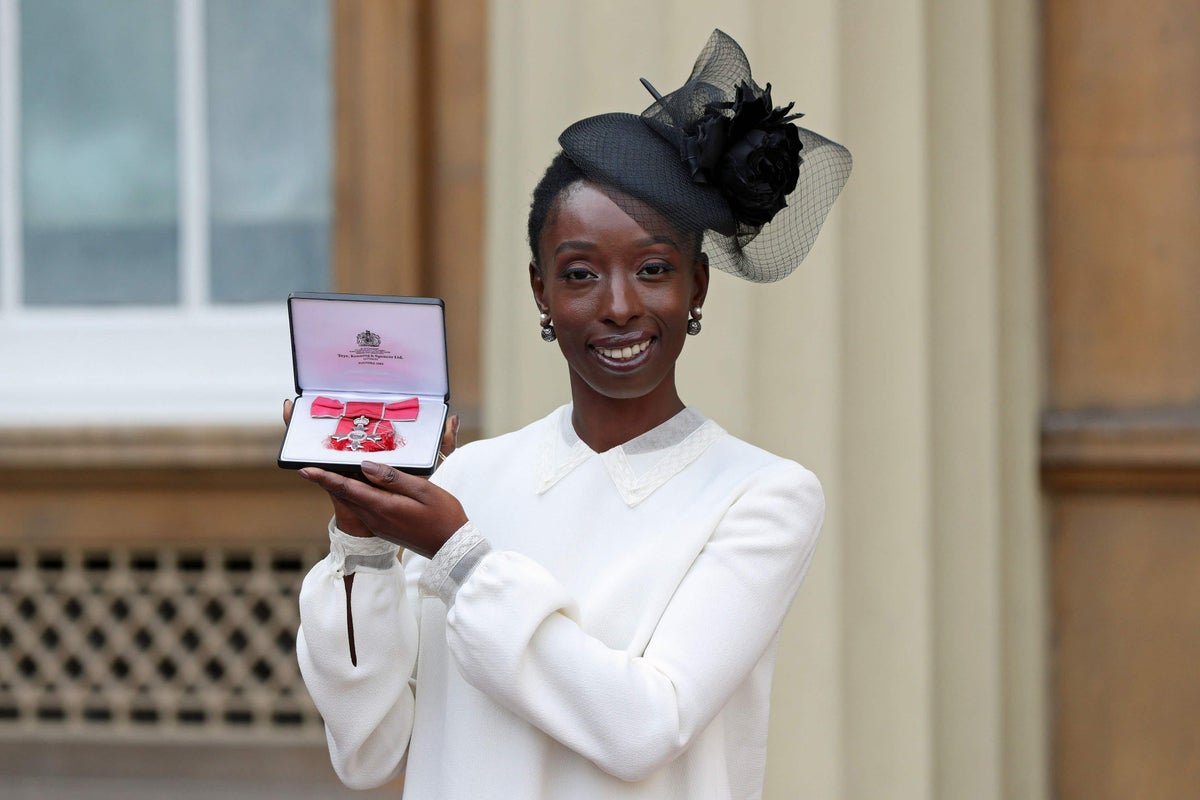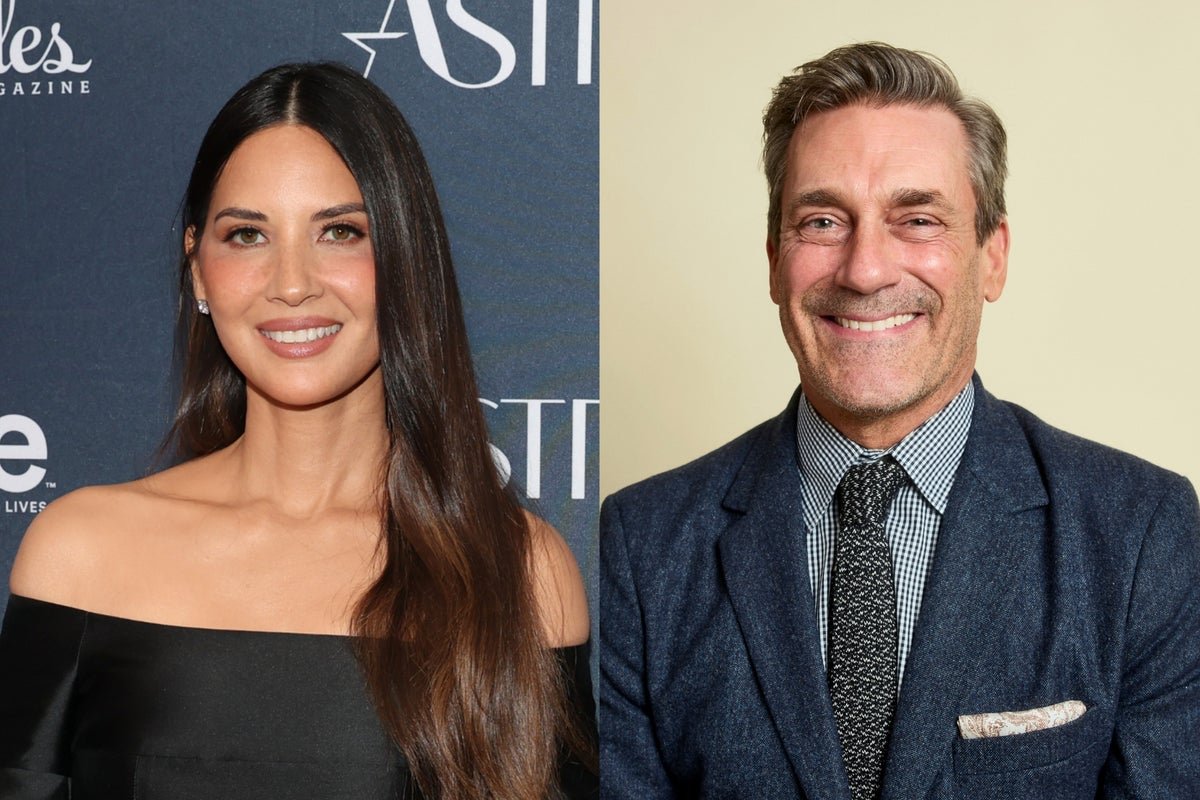For years, Eunice Olumide MBE was a dual force in opposing industries. She was known for gracing the covers of Vogue and runways of Gucci, but out of the spotlight, she was rapping alongside the world’s biggest hip hop stars.
The 37-year-old supermodel, activist and Star Wars actress is bringing her hidden past to light in her directorial debut Secret Lives, which tells the untold history of British hip hop. Olumide sat down with PA to share why now is the time she’s decided to open up.
“In 2023 I was presenting a TV show called Edinburgh Unlocked and at the same time I released this EP,” says Olumide, who was rapping under a pseudonym. “A journalist who worked for [a newspaper] had this EP come across his news desk and he recognised that it was me by my voice. It blew his mind.”
She pauses, “I pleaded with him not to run the story [about my double life] and just to run a story on the EP, which thankfully, he eventually did.”
It’s the kind of media entanglement most celebrities dread, but for Olumide, it was a tipping point. “Social media was and is becoming bigger and bigger,” she says, “and so I was just really conscious that this was going to come out. So either I talk about it myself, or I let someone else talk about it who might not do it justice.”
Secret Lives was her answer. A documentary that traces the overlooked pioneers of UK hip hop, and her own decision to remain anonymous in the scene, even as her name rose in fashion. “I really wanted to create a competing ideology,” she explains, “to prove that you could do music and be successful as a female artist without putting your body first.”
At just 15, Olumide was discovered by a scout from a local modelling agency while shopping in Sauchiehall Street, Glasgow. It was at this age that she also released her first single.
By 17, she was touring and rapping with legends like Mos Def, Damian Marley, Lauryn Hill and Wu Tang.
“What I learned early on […] from major record labels that wanted to sign me was that, as a woman, it was not possible for me to retain my creative control and my intellectual property,” she says. “Unless I conformed to a different way of representing myself.”
That way of representing herself was through sexualisation, which she didn’t believe was relevant to her music.
It was a jarring parallel, in one world, modelling was offering her money for her image, and in many ways, hip hop was demanding the same. “I deliberately separated them,” she says. “I didn’t want anyone to say, ‘She’s only successful in music because she’s a model.’”
And so her solution was to wrap up and shut down. “I was always like, scarfed up, hooded up, sunglasses – looking as unattractive as possible,” she laughs. “Promoters, managers, labels – they could not understand it and did not like it at all.”
Despite the pushback, her musical peers respected it. “People respected me because I had a reputation for my music and nothing else,” she says.
She fondly recalls how Busta Rhymes once introduced her as “my little sister, like, she’s a G.”
But Olumide’s choice to remain anonymous didn’t mean she wasn’t a mainstream success. Back in 2010, she performed at one of the world’s biggest music festivals.
“Playing at Glastonbury as a hip-hop band was just unheard of,” she says, “so you know that was such an incredible experience and I kind of feel like at such an early age, [myself, Jamal Edwards and Liam Tootill from SBTV] achieved so much.”
View this post on Instagram
But the drive behind her film Secret Lives runs deeper than recognition. It’s about preserving a history on the verge of being forgotten.
“There are documentaries saying that hip hop started in 2002 just because that’s how far back Google goes,” say Olumide, quoting fellow rapper and comedian Ben Bailey Smith (Doc Brown), who also appears in the film.
“My thing was about creating an archive of history – British history – that’s important to all of us.”
The film touches briefly on her story, including a moment where old collaborators react to learning she worked in fashion. “Literally one or two people in the UK and one or two people in the US knew,” she says.
View this post on Instagram
One of the few who didn’t need telling was the late British designer Vivienne Westwood.
“She had an ability to read people,” says Olumide, “so it wasn’t something I needed to articulate.”
She credits Westwood as a kindred spirit – someone battling the same contradictions between art and commercial success, as she navigated being a climate activist in the fashion industry. “She loved me to bits,” Olumide smiles simply.
And while fashion had its contradictions, it was a career that gave her indispensable tools too. “I got a lot out of fashion – it’s one of the only industries in the world where women get paid more,” she points out, “and definitely it’s less discriminatory based on class.”
It also gave her the confidence to present herself in ways she now finds empowering. “I don’t think I’d know how to present myself now, other than the obvious hyper-sexualised woman, if I hadn’t worked in fashion.”
But playing these varying characters for runways, cover shoots and campaigns didn’t seep into her life outside of work.
“I don’t feel like I present myself as different characters. I feel like I’m just me and I just make art,” she says, “but I think fashion gives me the ability to represent myself to other people in a way that they can articulate and understand.”
View this post on Instagram
That includes using clothes to say things words can’t. “Fashion can be used to communicate with the world,” she says, citing the late Queen Elizabeth II’s symbolic wardrobe choices during visits to Ireland. “I’ve seen many women use fashion in a subversive way – to send a message without words.”
Using fashion and images to send subversive messages is prevalent in the music industry. Namely, in Sabrina Carpenter’s most recent provocative album cover – where she appears on all fours with her hair being pulled by a standing man – Olumide takes a breath.
View this post on Instagram
“I think that our nature as human beings is multifaceted,” she says. “It depends on the intention. If it’s a woman reclaiming her sexuality in a way that’s empowering to her, then that’s her right. If it’s done for attention or commodification, that’s something else. But I’m always more interested in the ‘why’ than the image itself.”
After years of defying commercial moulds, Olumide’s legacy may be less about having lived a double life, and more about having built a new lane entirely.
“I don’t even really see anything as separate,” she says. “I see life as one continuous cycle, and one circle.”
#pleaded #run #story #Supermodel #Eunice #Olumide #finally #opens #double #life



